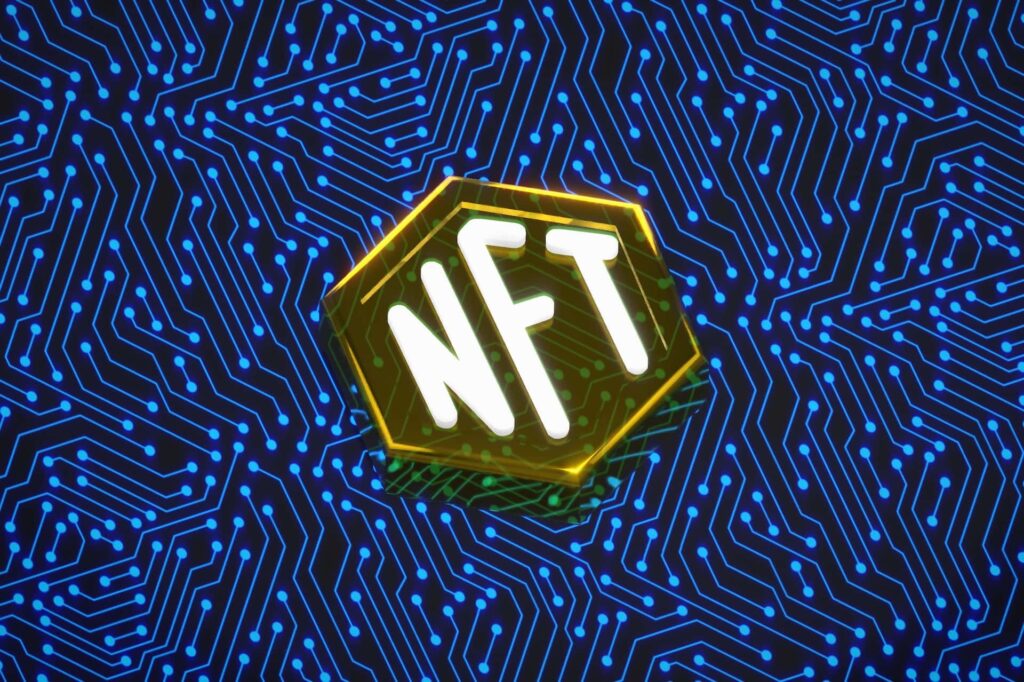The future of NFTs: Utility gaming tokens take center stage
4 min read
Non-fungible tokens cannot just be collectibles or status symbols anymore. The key to the longevity and relevance of the once-hot blockchain asset is utility.
Posted February 12, 2024 at 1:21 pm EST.
The non-fungible token (NFT) landscape is undergoing a radical transformation, challenging long-held beliefs and traditional norms. No longer mere digital collectibles, NFTs are at the cusp of a revolution, poised to redefine digital interaction and asset ownership in ways that some may find controversial, but which are undeniably groundbreaking.
But as NFTs evolve, it’s apparent that not all will emerge as victors in this new digital renaissance. As the landscape continues to shift and expand, it becomes increasingly clear that the key to longevity and relevance in this space is utility, and nowhere is this better demonstrated than in the Web3 gaming world.
Renz Chong is the CEO of BreederDAO, a firm that equips stakeholders with NFTs tailored to their specifications.
In the early days, NFTs primarily functioned as status symbols, often in the form of art or collectible items. They offered a novel way for individuals to showcase wealth, taste and technological savvy. Owning a rare or highly sought-after NFT became akin to possessing a luxury item in the physical world, a digital badge of honor that signified one’s participation in and contribution to the burgeoning world of blockchain and digital art, often as part of an exclusive community.
But today, NFTs are transitioning from collectibles to tools of ownership, authenticity, and vital components in expansive digital ecosystems.
Game On
Consider the resurgence of gaming NFTs. Although this area was previously overshadowed by other types of digital collectibles, gaming NFTs now sit prominently at the forefront of innovation. Functional prototypes and immersive gaming experiences are driving this change, turning gaming NFTs from mere in-game items into valuable digital assets with real-world relevance.
For instance, as of early February 2024, many gaming NFTs were trading for an average of 1.55 ETH apiece, over 3,000 USD. And the number of people engaging with these NFTs is considerable. In Dec. 2023, DappRadar reported that on average, there were 2.2 million monthly active blockchain game users in 2023.
This growth points to the fact that the integration of NFTs in gaming integration isn’t a mere novelty; it’s a strategic evolution adding real value to the gaming experience.
Read more: What are NFT dApps?
For instance, currently, a majority of the NFT collections that have the highest floors are in gaming. These are NFTs that can either serve as in-game characters in an upcoming release or as access passes to unlock other rewards. While most of the games of these projects are still in beta, the promise of potential in-game utility — along with previews of the games and the innovations they plan to introduce — is what differentiates a winning collection.
A great example is DigiDaigaku’s Genesis collection, launched in 2022. It was a free mint, which was an innovation in and of itself at that time. Since then, DigiDaigaku has released multiple collections under their umbrella term Factory NFTs, which promise a new and unique experience for gamers when the game comes out. Despite the game not being out, the promise of potential game integration (on top of other things) has driven the price up. Shortly after the first mint in Aug. 2022, the NFTs were selling for around 1.2 ETH; as of mid-February 2024, that figure had increased to 4.09 ETH.
Anything Can Be a Game
NFT collections that were not initially involved in the gaming world are catching on to the shift as well. Pudgy Penguins, for example, has long been pushing the boundaries of how far a brand born in Web3 can go. Recently, Pudgy Penguins announced the upcoming alpha release of “Pudgy World,” their new open-world game on Ethereum that will be powered by zkSync’s technology. And despite initial backlash, Pixelmon’s open-world RPG NFT game is now heralded as a leading project to watch in the NFT innovation space.
The increased versatility in NFT utility in gaming also points to a larger shift towards an increased emphasis on blockchain’s foundational purpose in gaming, a maturation in the gaming sector that signifies a deeper understanding of blockchain’s potential. It’s no longer only about trading digital assets; it’s about enhancing the gaming experience by inviting each player to make their playing experience uniquely their own.
This means that players are offered valuable, tangible elements within the game world, extending the significance of these assets beyond token trading. And yet, challenges persist, public perception still largely stands on the idea that Web3 games lack compelling user experiences, or that they exist primarily as speculative ventures. Changing this perception is essential to move further down the path of widespread user adoption of Web3 games.
Another challenge lies in balancing blockchain integration with game-play quality. Developers must ensure that blockchain complements, rather than overpowers, the gaming experience. They must create captivating games where blockchain serves as an enhancement of the experience rather than being the main attraction.
Read more: Crypto’s Awkward Flirt With the Video Game World
Therefore, they must create Web3 games with challenging, fun UX while ensuring that blockchain is integrated in an intuitive, unobtrusive way. And with the innovation that is happening on the NFT level, we’re starting to see these types of games realized in Web3.
So the key to sustainability and success in this new era lies in a project’s ability to blend a compelling narrative with genuine utility, strong community support and a certain level of hype.
Source link
#Utility #Gaming #Tokens #Future #NFTs






